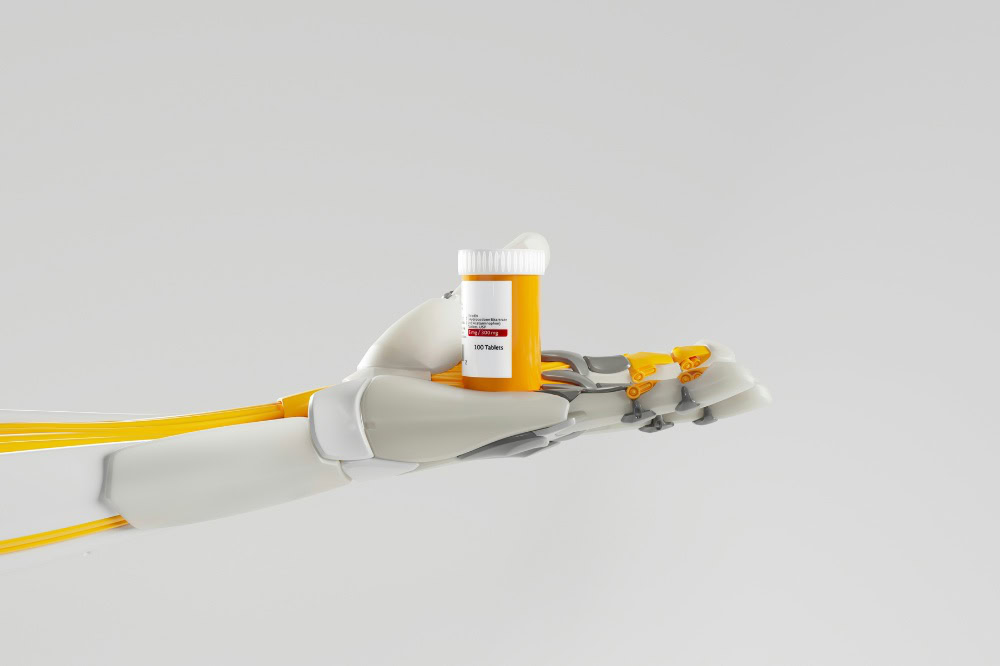
Table of Contents
In most medical schools across the U.S., artificial intelligence (AI) is being used in formal physician training, patient care simulation, and personalized feedback. Some med schools have even started offering multiple courses on AI in medicine.
It is impossible to ignore AI machine learning in medical education — not just ChatGPT. Nearly every medical program (with a few notable exceptions) are using AI in their education now. It will only become more prevalent as time goes on.
In the article below, we’ll cover how AI is being used, how it’s not being used, and what that means (benefits and concerns) for prospective med school students and future clinicians.
Looking for real human help with applications to med school or residency? MedSchoolCoach is here to help!
Current Uses
Let’s talk about how most medical colleges currently use AI, such as virtual training, studying (whether sanctioned or not), and personalized assessments.
Further down in this article, we’ll get into how they’re not using AI yet and how AI in medical education can benefit you.
Virtual Practice and Patient Simulations
In medical schools, AI is used for certain patient and clinical simulations so that students can practice patient communication and no-risk diagnosis or treatment. Students can develop empathy, professionalism, and clinical skills without real-world consequences of getting it wrong.
The major AI platforms for this virtual medical practice include MedSimAI and ChatClinic. With MedSimAI, students can chat with an AI patient about their symptoms. ChatClinic is an educational tool that simulates case studies using advanced AI.
Important stat: This 2024 study shows that AI systems can outperform physicians alone — and even physicians using AI — in diagnostic success. The authors conclude that physicians must be better trained on the effective use of AI.
Personalized Feedback and Assessment
AI is great for providing personalized feedback and assessment, although it isn’t perfect.
A big way AI is helping with student evaluation is the MSPE. The Medical School Performance Evaluation (MSPE) is a huge piece of your residency application. Typically, a school puts together an MSPE for each med student to show residency programs their academic and extracurricular strengths.
Some medical schools have started to compile MSPEs through AI. For example, the Miller School of Medicine trained an AI tool to summarize multiple narrative professor evaluations for each student. They emphasize that students may submit corrections, and the faculty has the final decision.
Real-world study: 2025 research finds that personalized AI feedback “enhances students’ clarity of goals, boosts their confidence, and increases their involvement in learning” all while fostering “a sense of mastery and control, improving both goal achievement and self-efficacy.”
Studying With ChatGPT
Unlike their predecessors, modern medical students can study using AI chatbots, natural language processing programs, and deep learning tools. Of course, students must ensure they do not violate school policies.
ChatGPT and its medical equivalents can access every open-access full-text medical journal in an instant and regurgitate evidence-based medical knowledge in real time. That’s faster than students looking up keywords on Google Scholar, right?
Now, this method of medical training is fallible and prone to AI hallucinations. However, talking to an AI chatbot about what you’re studying can be a strong alternative to simply referencing your scribbled notes and skimming outdated textbooks.
Surprising data: A study from last year found that almost half of medical students regularly used ChatGPT to study and help them write essays, many preferring AI chatbots to consulting professors, lecture videos, or textbooks.
Formal AI Training
While many schools are using AI tools to train physicians, some schools are taking the extra step of offering courses on AI itself. Teaching students how to use AI ethically and effectively can improve their comprehension and confidence while training up future medical AI researchers.
Medical schools like George Washington and Stanford offer AI in medicine courses. Other schools of medicine are offering entire AI-focused degree programs, such as:
- AI in Medicine PhD from Harvard School of Medicine
- Joint MD/MS program in AI at UT Health San Antonio and UTSA
- PhD in Biomedical Sciences with an AI focus at Icahn School of Medicine at Mount Sinai
Read Next: Top US Medical Schools Embracing AI
How It’s Not Being Used
Certain schools are intentionally limiting AI to preserve critical thinking. They’re avoiding AI-based technologies in exams and admissions to ensure fairness. Other schools are simply not changing their policies or curricula to adapt to the new AI-powered landscape.
A recent EDUCAUSE study found that a surprisingly low 14% of med schools have developed an official generative AI curriculum, compared with 60% of undergraduate colleges.
Robert Pearl, former CEO of Permanente Medical Group, said earlier this year that it’s a mistake for medical schools to view generative AI only as a tool for administrative tasks, instead of as a clinical tool that can save hundreds of thousands of lives lost to medical errors.
Of course, almost no one is advocating for med school students to have AI chatbots complete coursework and exams for them. That’s one way that (most) everyone can agree AI should not be used in medical education.
Read Next: Best Med Schools for Nontraditional Students
The Benefits
A few of the benefits of integrating artificial intelligence in medical education are that it:
- Increases the efficiency of faculty and learners.
- Gives editing suggestions for essays (please don’t let Chat GPT write your papers).
- Improves accessibility and cost barriers of medical education.
- Prepares students for AI being more present in modern healthcare systems.
- Manages large volumes of applications, medical informatics, and research.
- Provides personalized feedback that promotes better student goal-achieving.
- Makes curriculum development easier for faculty and administrators.
- Encourages flexible learning experiences outside of the lecture and high-risk clinical work.
- Allows students to gain clinical reasoning without expensive medical actors or real-world consequences of an actual clinical practice.
Concerns and Future Challenges
Some major concerns about AI being used in medical schools include:
- Risk of students depending on AI algorithms and chatbots instead of developing independent diagnostic reasoning, clinical decision-making, critical thinking skills, and healthy communication skills with other healthcare professionals.
- AI competency as an unfair metric for medical licensing.
- Not all schools have equal access to advanced AI learning tools.
- AI’s inconsistent accuracy and potential for misinformation.
- The possibility of racially biased datasets influencing AI models.
- Ethical issues (e.g., patient data privacy, consent, regulation issues, harmful errors).
Read More: Preparing for Med School as a High Schooler
FAQs
Several AI-driven chatbots like ChatGPT exist specifically for medical settings. These include MedSimAI, which is more common in classroom settings, Clinic Chat, which is made for clinical settings, and OpenBioLLM-8B, a large language model available for personal or research use.
Here are some ways we already use artificial intelligence in healthcare and the medical field:
- Diagnostics
- Treatment recommendations
- Injury prevention and disease prediction
- Monitoring, in a hospital or remotely
- Hospital-patient communications
- Administrative tasks
- Medical transcription
- Telehealth
Balance Is Key
In my view, here’s the greatest potential for the use of artificial intelligence in medical education going forward:
- More AI integration and focus on digital health in clinical training
- Standardized, regulated use across schools and health systems
- The application of AI to replace the menial tasks of faculty and administrators – hopefully without putting anyone out of a job
- Changes in how licensing exams and residencies are approached
- Widespread ethical debates about how and when to use AI-enabled tools in med school, public health, and beyond
While AI technologies can be a great resource, they’re not a replacement for expert coaching from real people who have been through the medical education system and on AdComs. AI can be an amazing tool, but there has to be a balance between AI and the human element.
Let us help you increase your odds of acceptance. MedSchoolCoach offers real human professionals who’ve experienced this process as both applicants and admissions committee members.

Sahil Mehta MD
Dr. Mehta is the founder of MedSchoolCoach and has guided thousands of successful medical school applicants. He is also a practicing physician in Boston where he specializes in vascular and interventional radiology.





